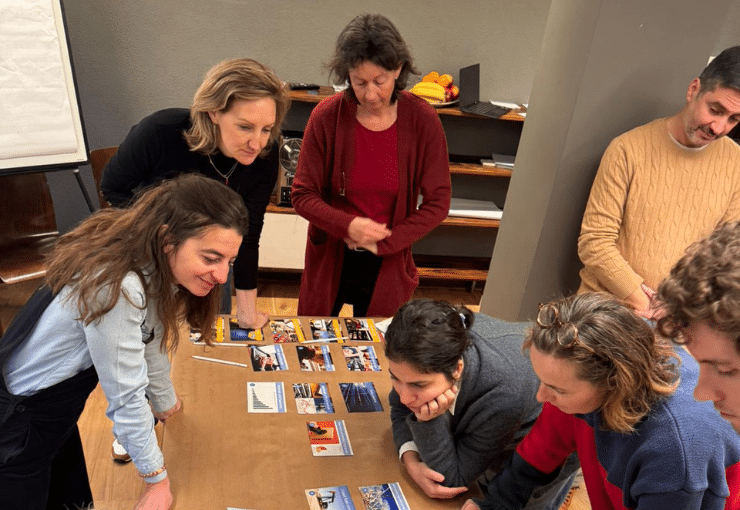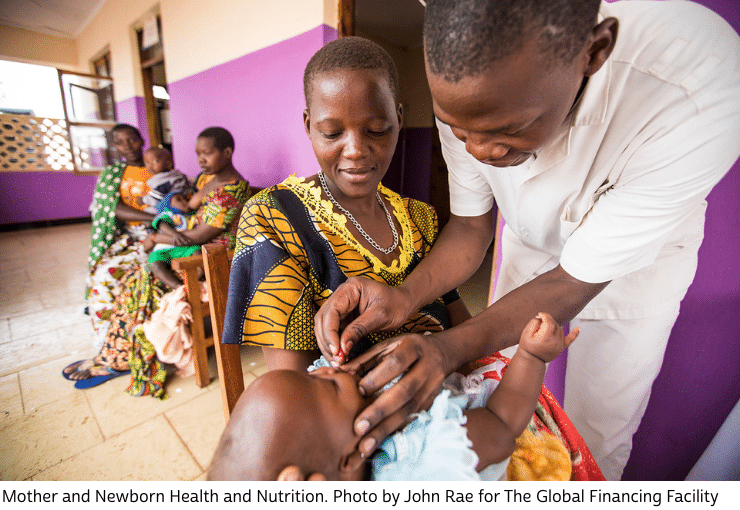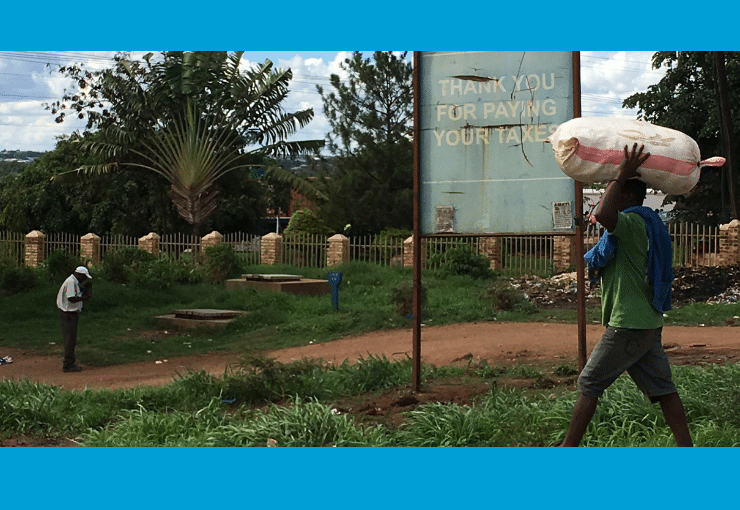Imagine working at a health clinic for a week on the run. Imagine finding out that your only colleague has left and will not be replaced. Imagine, then, having to rely on your mobile telephone for light while attending a mother giving birth. Does this sound extreme? It is. It is also the reality of health workers in Malawi.
Malawi, a country with a population of 17 million, suffers from a severe shortage of health workers. According to the WHO guideline, there should be 445 health workers per a population of 100,000; in Malawi, there are about ten times less these numbers. Infant and maternal mortality remain high in the country, despite the fact that most women deliver in health clinics or hospitals.
It is in public hospitals and health clinics, especially in rural areas, where the situation is at its worst. I talked to health workers in Mchinji, a district bordering with Zambia and Mozambique, a couple of hours to the west from the capital Lilongwe. Their stories are disheartening.
Power cuts
‘We sometimes have no electricity for a whole week,’ told Listen, a midwife working in the Mchinji District Hospital. ‘So what do you do?’ I wondered. She looked at her colleagues. The young women and men smiled, embarrassed. ‘Well, we are quite used to doing deliveries in candlelight,’ they finally said.
Candles, and mobile telephones belong to the essential equipment of the public hospital staff in Mchinji, I understood. Surgeries and deliveries with light from the mobile telephones are no rarity, as the only generator in the hospital has limited capacity.
Mchinji has in every sense the feeling of a border town. It is a go-through place, a town where to stop for groceries, household goods, or other supplies: car tyres, beds, water. It shares with countless many other provincial towns in the low-income parts of the world the feeling that everything is happening right there, at the roadside, somehow constantly in passing.
Also the bare walls and worn-out furniture in the district hospital carry for me the memory of many other such places, be it in rural China or in North-East Brazil some decades ago. The impression was one of a complete still-stand.
But it is a still-stand the health workers have to cope with. There are frequent power cuts indeed, and medicines and other supplies are often lacking. The nurses may even go to a private hospital to buy medicines, with their own money, if needed.
‘The time is simply not there’
Frazer, a male nurse, told me how the rain season is hardest of all, as it is the prime season for malaria. ‘As medicines are lacking, and supplies are expensive to buy, we often can’t do enough.’
Agnes, a young nurse technician, recounted: ‘One afternoon, there was no electricity at the neo-natal ward. I had to go look for the generator, and when I went back I found a completely silent baby. It was only hours later when the baby finally gave a sign of life again. In the meanwhile, nobody was taking care of the other babies. I sometimes have to leave the babies on their own with their mothers for days.’
‘My worst experience is a patient who died during the handover from another nurse,’ told Greg, another male nurse. ‘I often only have time for admissions, not for care for the patients,’ added still someone else. ‘People here are very shy in complaining. If they are in pain, they won’t tell. So you really need to observe them, but the time is simply not there.’
To find the time would need at least an improvement of the healthcare system, if not a small revolution. Asked what they would change first if they could, the hospital nurses and midwives are unanimous: there should be more jobs, more trained staff put to work.
‘Donors have financed the education of large numbers of health workers, while they also have discouraged the government’s investment in more jobs,’ says Dr Ann Phoya, President of the Association of Malawian Midwives (AMAMI). ‘As a result, the newly trained nurses and midwives cannot be absorbed in the health system. The message to the government is: look at health as an investment, not as a burden.’
‘While we are overworked, I know so many unemployed nurses who just sit at home,’ sighed Agnes, the health worker in Mchinji. ‘I wish they could get a job.’
Little improvement
The impasse was painfully visible in the rural health clinic, still in Mchinji district, where I paid a visit after leaving the district hospital. There, in a plain-looking group of smallish low buildings at the end of a dirt road, two nurse midwife technicians, one community midwife and a medical assistant work on a never-ending rotation. Ines and Mary, the nurse midwife technicians often work a whole week on the run, 24 hours a day, no sleep, no rest whatsoever, to be able to go home for their week off.
The deprivation of rest and sleep must pay back in their energy and motivation, I noted. All four of them agreed on that, adding that they cannot do much to change the situation. ‘I had a colleague,’ he told, ‘but then he left and was never replaced. That was four years ago; since, I have not had any leave,’ said Felix, the medical assistant.
‘When our organization was founded in 1979, that nurses and midwives had no rights whatsoever,’ says Dorothy Ngoma, president of the National Association of Nurses and Midwives of Malawi (NONM). ‘They were treated very badly, and they could not protest as they were not organized.’
‘After the first legal case NONM won, we gained respect in the eyes of the government,’ says Ms Ngoma. Still, there is a long way to go. ‘Things just don’t improve. To work in circumstances like in rural Mchinji, without days off or even breaks is a guarantee for a burnout.’
Felix agreed on that: ‘Things are not getting better or worse. They stay the same. There is no improvement, there are only more people to care for now, so I guess it is actually worse than it used to be.’
No ambulance
When we had sat there for a while, the stories came up. Gloria, the community midwife who has had a training of only one year to be able to be rapidly deployed to address the high maternal mortality and morbidity in Malawi, told: ‘I do deliveries on my own; I do practically everything. I remember when I just worked here, one day I was alone on duty. There was a mother in labour. The umbilical cord came out first. The ambulance could not come, because there was no fuel. There was no staff around, I simply had to wait. Finally the baby came out, dead. The family then came to take and bury the baby in their village.’
‘A Mozambican mother came to deliver twins,’ told Ines, the nurse midwife technician. ‘She started bleeding, and the ambulance was somewhere else very far away; I was alone. Then I hired a motorcycle with my own money; the family paid later back. The babies and the mother survived.’
Similar stories were plenty. Her colleague Mary recounted her earlier experience in another district: ‘Again there was no ambulance, and I was afraid the patient would die. She needed a Cesarean section, but the next hospital was 15 km away. Then we found someone who could take her on a motorbike. Finally it was fine.’
When we were about to leave the village health clinic, a man came to me out of nowhere. His pale eyes had a distracted look. ‘Please find someone in your country whom I could write to,’ he insisted without introduction. ‘I want to learn more about the world, you see.’ And, seeing my hesitation: ‘I work here at the clinic.’ The car was already purring and the driver signed that it was really time to go, but the man pressed further on: ‘You have to try’. I said that I would. ‘And how will you get the word to me?’ he shouted. ‘Through the clinic,’ I answered, as that was all I could think of. ‘Yes, I guess that will do,’ he nodded.
Driving across the thick maize fields back to the Lilongwe road, I almost wished the man would really have worked in the clinic, if only helping out with some routine tasks. But I knew all too well that there were only Ines, Gloria, Mary and Lewis, taking turns month in month out, year in year out.




